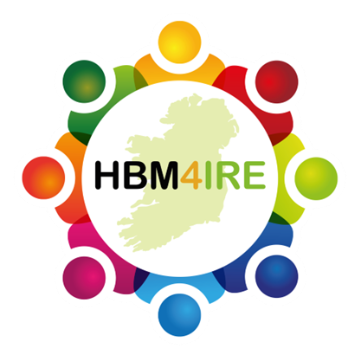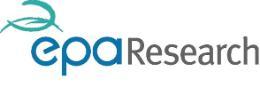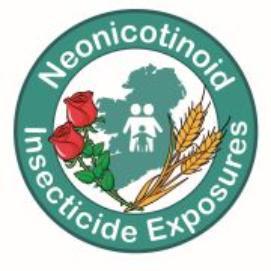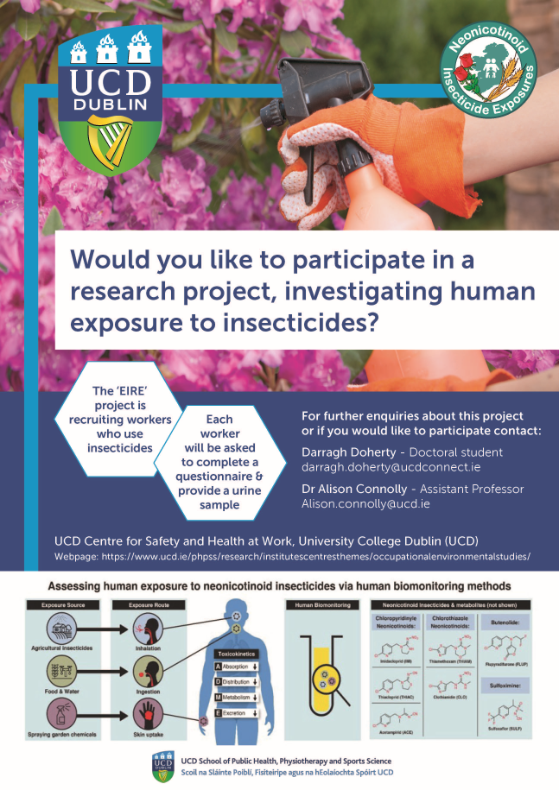Occupational & Environmental Studies
Research
- Institutes, Centres & Themes
- CSTAR
- Clinical Epidemiology Group
- Sport and Performance
- Food and Health
- Physiotherapy, Rehabilitation & Health
- Social and Behavioural Studies (Geary Institute)
- Occupational & Environmental Studies
- ETSEA study
- UCD Centre for Food Safety
- UCD Centre for Translational Pain Research
- UCD Institute for Sport & Health
- Other Useful Links
- Researcher Spotlight
- Undergraduate and Taught Masters Research Ethics Committee
The Centre for Safety and Health at Work (CSHW) is part of the School of Public Health, Physiotherapy and Sports Science (PHPSS) in the UCD College of Health and Agricultural Sciences.
The aim of the Centre is to strengthen our proven record of success in promoting the highest standards of Occupational Safety and Health through excellence in Teaching, Research and Administration.
We will continue to advance knowledge and set the agenda in Occupational Safety and Health in collaboration with national and international stakeholders through excellence in research and in the context of research activities and programmes within the School of Public Health, Physiotherapy and Sports Science.
Centre for Safety and Health at Work
Human Biomonitoring Programme for Ireland- HBM4IRE study
HBM4IRE is a study funded by the Environment Protection Agency to explore the feasibility of setting up a permanent national Human biomonitoring (HBM) programme in Ireland.
HBM is a mechanism used to assess human exposure to hazardous substances harmful to health by measuring levels of chemicals in human samples such as blood, urine, hair, or breast milk. HBM can determine and identify trends in exposure to chemicals that are of growing concern for human health, providing information for regulatory agencies and policymakers, thus playing a decisive role in health prevention and risk management strategies.
HBM studies performed among the Irish population are limited and dispersed, making it difficult to determine the effectiveness of chemical risk management measures in Ireland. Several EU countries have well-established national HBM programmes demonstrating the potential for HBM to protect the environment and public health. Ireland currently does not have a national HBM programme.
The HBM4IRE study will evaluate the necessary criteria and present the first building blocks for establishing a national HBM programme, as well as the chemical prioritisation method and a chemical priority list specific to Ireland, identifying the opportunities and challenges for a national HBM programme.
We will invite policymakers, regulators, and the public to participate in a survey to nominate chemicals and substance groups of concern in Ireland. To determine a priority list of chemicals of interest for Ireland, we will combine the chemicals nominated from the national survey with national chemical usage data. We will identify the best practices for monitoring these chemicals aligned to EU regulations and guidelines. We will host a stakeholder forum and workshop with national/ international experts in HBM and chemical exposure to explore practical and logistical requirements for setting up a national human biomonitoring programme.
A national HBM program will support government and regulatory authorities to monitor the levels of chemical exposure in the Irish populations over time better to qualify health risk assessment of national and international interest. If you live in Ireland and would like to participate in the national survey or would like further information on the study, please contact Dr Alison Connolly ((opens in a new window)alison.connolly@ucd.ie) or Dr Cathriona Kearns ((opens in a new window)cathriona.kearns1@ucd.ie).

EIRE Study (nEonicotinoid Insecticide exposuRE research) 
EIRE is a study, among the Irish population, of environmental and occupational exposure to neonicotinoid insecticides using a human biomonitoring strategy. The study is being led by Dr Alison Connolly of the UCD School of Public Health, Physiotherapy and Sports Science.
Neonicotinoid insecticides and neonicotinoid-like compounds (NNIs) are the most widely used class of insecticides worldwide. There are numerous types of NNIs, some of these are used to protect plants (e.g. roses) or to prevent insect infestations of crops and increase yield e.g. sugar beet. NNI’s can be found in commonly found insecticide products e.g. Roseclear® and Bugclear®. The EIRE study will use human biomonitoring (HBM) to quantify overall exposure to NNI’s in both environmental and occupational settings. HBM is an ideal tool to calculate exposure to NNI’s where there is the potential for multiple exposure routes e.g. inhalation, dermal and ingestion by measuring the NNI’s and their metabolites (break-down product).
In the EIRE study, we will collect human urine samples and analyse the samples for NNIs and their metabolites (breakdown products). In addition, the urine samples will also be analysed for creatinine (a natural waste product of the human body). This is a measure of urine sample dilution. The analysed urine samples will provide information that we will use to estimate amenity horticulturists, their co-workers and families’ exposure to NNIs in Ireland. In addition, we will measure environmental exposures by giving workers silicone wristbands.
The information collected in this study will generate data on environmental and occupational exposure to NNI’s, information which can be used to support policy-making and examine methods to reduce exposure. Studies such as EIRE are important to evaluate the level of exposure of these chemicals in the general population and in work settings.
The research study will be carried out by researchers based in the UCD School of Public Health, Physiotherapy and Sports Science in collaboration with the Institute for Prevention and Occupational Medicine (IPA) of the German Social Accident Insurance Bochum, Germany. The study is planned to take place from May 2022 – May 2026.
This study is funded by the Science Foundation Ireland (SFI) pathway programme.
If you are interested in participating in the study or would like further information, please contact Darragh Doherty, Doctoral Student at the Conway Institute, UCD at (opens in a new window)darragh.doherty@ucdconnect.ie or (opens in a new window)Dr Alison Connolly, Assistant Professor at the Centre for Safety and Health at Work, UCD at (opens in a new window)alison.connolly@ucd.ie.

COVID19 outbreaks in workplace settings: understanding and preventing superspreading (SFI)
- COVID19 prevention and control measures in workplace settings: a rapid review and meta-analysis (opens in a new window)https://www.mdpi.com/1660-
4601/18/15/7847 -
Development and validation of a multi-lingual online questionnaire for surveying the COVID-19 prevention and control measures used in global workplaces (opens in a new window)https://bmcpublichealth.
biomedcentral.com/articles/10. 1186/s12889-022-12500-w - ‘Communication, that is the key’: a qualitative investigation of how essential workers with COVID-19 responded to public health information. (opens in a new window)https://bmjopen.bmj.com/
content/12/7/e061583 - Challenges and Associated Mental Stress during COVID19 Work Adaptation among Employees in Ireland
-
Employee mental health during COVID-19 adaptation: Observations of Occupational Safety and Health / Human Resources Professionals in Ireland.
Recent OSHE Research
- Evaluating Safety and risk awareness in contact sports: development of a quantitative study for elite rugby (opens in a new window)https://journalsojs3.fe.up.pt/
index.php/ijooes/article/view/ 2184-0954_006-001_0004 - Factors influencing the use of hearing protection devices in Irish mine workers (opens in a new window)https://ijooes.fe.up.pt/index.
php/ijooes/article/view/2184- 0954_005-002_0005 - The challenge of Depeche Mode in the fashion industry: does the industry have the capacity to become sustainable through circular economic principles, a scoping review (opens in a new window)https://www.tandfonline.com/
doi/full/10.1080/27658511. 2021.1975916
Research and Consultancy
The Centre provides a focus for research initiatives carried out either entirely at UCD or jointly with other organisations. For further information on the Centre and its activities, please contact us
Contact Information
For application information on OSH programmes, please contact:
Programme Administrator
UCD School of Public Health, Physiotherapy and Sports Science
UCD Centre for Safety and Health at Work
Woodview House
University College Dublin
Belfield,
Dublin 4,
Ireland
- Tel: +353 1 716 3420
- Fax: +353 1 716 3421
- Email: (opens in a new window)cshw@ucd.ie
For application information on all postgraduate programmes in the School, please contact:
Postgraduate Administrator
UCD School of Public Health, Physiotherapy and Sports Science
University College Dublin
Belfield
Dublin 4
Ireland
- Tel.: +353 (0)1 716 3429
- Fax: +353 (0)1 716 3421
- Email: (opens in a new window)public.postgraduate@ucd.ie
Current research is carried out by (opens in a new window)Professor Anne Drummond, Dr. Conor Buggy, and (opens in a new window)Dr. Penpatra Sripaiboonkij.